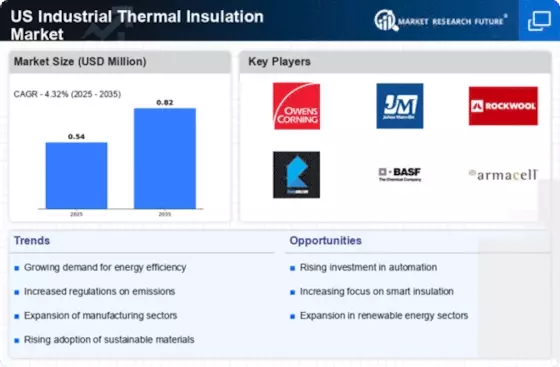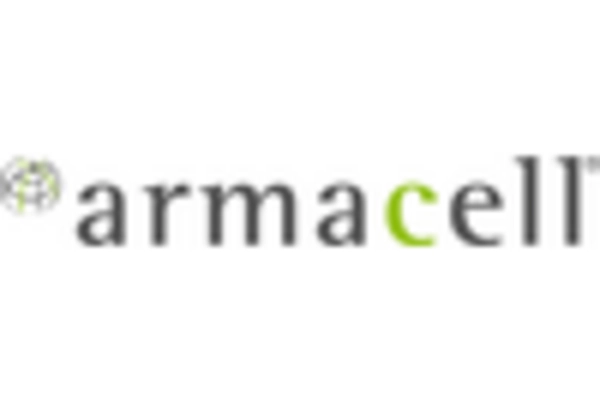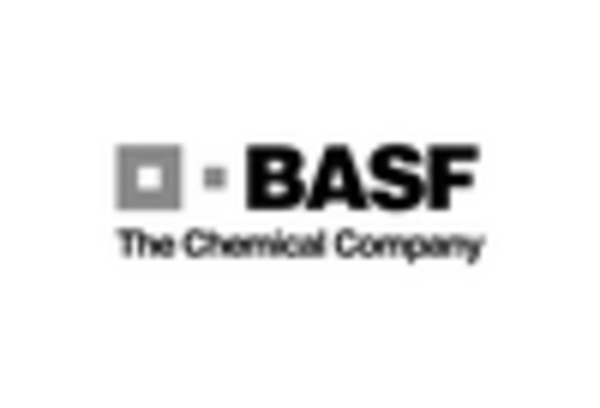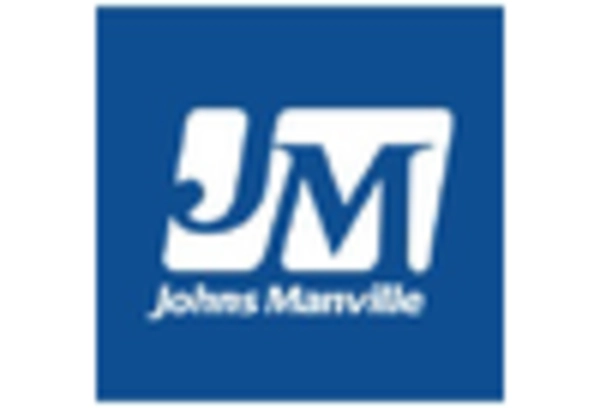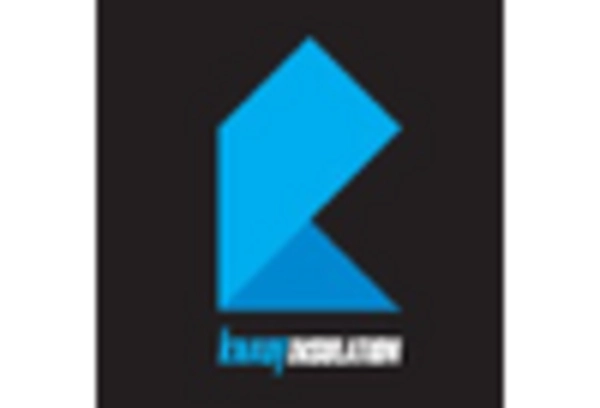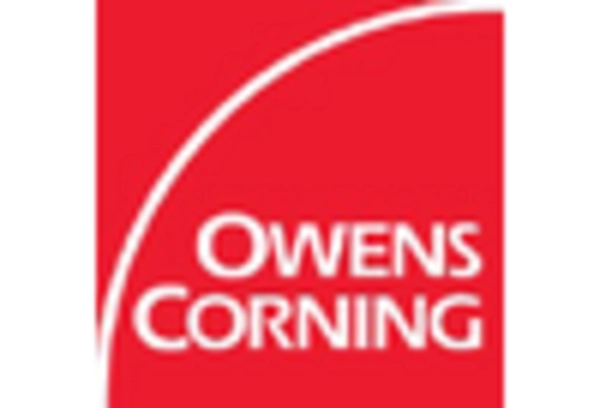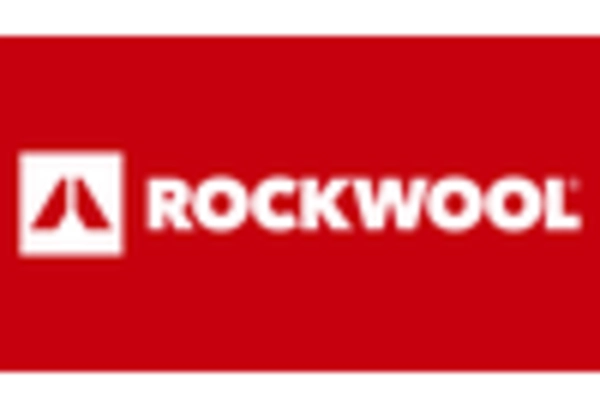Rising Energy Costs
The US Industrial Thermal Insulation Market is experiencing a notable surge in demand due to escalating energy costs. As energy prices continue to rise, industries are increasingly recognizing the importance of thermal insulation in reducing energy consumption and operational expenses. Insulation materials play a crucial role in maintaining temperature control, thereby minimizing energy loss. According to recent data, industrial facilities that implement effective thermal insulation can achieve energy savings of up to 30%. This trend is particularly evident in sectors such as manufacturing and petrochemicals, where energy efficiency is paramount. Consequently, the rising energy costs are driving investments in thermal insulation solutions, positioning the US Industrial Thermal Insulation Market for substantial growth in the coming years.
Expansion of Industrial Sector
The US Industrial Thermal Insulation Market is poised for growth due to the ongoing expansion of the industrial sector. As manufacturing and production activities ramp up across various industries, the demand for effective thermal insulation solutions is expected to rise correspondingly. Sectors such as food processing, pharmaceuticals, and energy are particularly driving this demand, as they require stringent temperature control to ensure product quality and safety. The expansion of infrastructure projects, including power plants and manufacturing facilities, further contributes to the increasing need for thermal insulation. This growth trajectory indicates a robust market outlook for the US Industrial Thermal Insulation Market, as industries seek to enhance efficiency and comply with regulatory standards.
Regulatory Compliance and Standards
The US Industrial Thermal Insulation Market is significantly influenced by stringent regulatory compliance and standards aimed at enhancing energy efficiency. Government regulations, such as the Energy Policy Act and various state-level initiatives, mandate the use of thermal insulation in industrial applications to reduce greenhouse gas emissions. These regulations not only promote sustainability but also encourage industries to adopt advanced insulation materials that meet specific performance criteria. As a result, companies are compelled to invest in high-quality thermal insulation solutions to comply with these regulations, thereby driving market growth. The emphasis on regulatory compliance is expected to continue shaping the landscape of the US Industrial Thermal Insulation Market, fostering innovation and the development of new insulation technologies.
Growing Awareness of Environmental Impact
The US Industrial Thermal Insulation Market is increasingly driven by a growing awareness of the environmental impact of industrial operations. As sustainability becomes a focal point for businesses, there is a heightened emphasis on reducing carbon footprints and energy consumption. Thermal insulation plays a pivotal role in achieving these sustainability goals by minimizing energy loss and enhancing overall efficiency. Industries are now more inclined to invest in eco-friendly insulation materials that align with their corporate social responsibility objectives. This shift towards sustainable practices is not only beneficial for the environment but also enhances the reputation of companies in the eyes of consumers and stakeholders. Consequently, the growing awareness of environmental impact is expected to significantly influence the US Industrial Thermal Insulation Market, fostering a demand for innovative and sustainable insulation solutions.
Technological Advancements in Insulation Materials
The US Industrial Thermal Insulation Market is witnessing a wave of technological advancements that are enhancing the performance and efficiency of insulation materials. Innovations such as aerogel and vacuum insulation panels are gaining traction due to their superior thermal resistance and lightweight properties. These advanced materials not only provide better insulation but also contribute to space-saving designs in industrial applications. The integration of smart technologies, such as IoT-enabled monitoring systems, further optimizes insulation performance by providing real-time data on temperature fluctuations and energy usage. As industries seek to improve operational efficiency and reduce costs, the adoption of these advanced insulation technologies is likely to propel the US Industrial Thermal Insulation Market forward, creating new opportunities for manufacturers and suppliers.


